The Impact of Homeownership on Community Stability
Homeownership is more than just a personal achievement; it plays a pivotal role in shaping the stability and well-being of communities. Beyond providing individuals with a sense of security and belonging, homeownership has far-reaching effects on the overall stability of neighborhoods and the communities they form. In this blog, we will explore the multifaceted impact of homeownership on community stability and why fostering a culture of homeownership is crucial for building resilient and thriving neighborhoods.
1. Economic Stability
One of the most significant ways in which homeownership contributes to community stability is through economic factors. Homeowners often have a vested interest in the prosperity of their neighborhoods, as property values are directly tied to the overall health of the community. When residents own their homes, they are more likely to invest time, effort, and resources into maintaining and improving the local infrastructure. This, in turn, enhances the economic stability of the community, attracting businesses, increasing property values, and creating a positive cycle of growth.
2. Social Cohesion
Homeownership fosters a sense of stability and commitment among residents, leading to stronger social ties within a community. Homeowners typically have longer tenure in their neighborhoods compared to renters, allowing for the development of lasting relationships. These connections form the foundation of social cohesion, which is essential for building a sense of community. When people feel a sense of belonging and connection to their neighbors, they are more likely to engage in community activities, participate in local initiatives, and work together to address common challenges.
3. Educational Outcomes
Research consistently shows a correlation between homeownership and positive educational outcomes for children. Stable housing contributes to a stable educational environment, as children from homeowner families tend to experience less residential mobility. This stability positively influences academic performance and emotional well-being. Communities with a higher rate of homeownership often have more engaged parents, resulting in better-funded schools, increased extracurricular opportunities, and overall improved educational outcomes for the next generation.
4. Reduced Crime Rates
Homeownership has been linked to lower crime rates in various studies. When residents have a long-term stake in their community, they are more likely to invest in crime prevention measures and collaborate with law enforcement. Homeownership creates a sense of accountability, as neighbors are more likely to look out for one another and collectively work towards maintaining a safe and secure environment. This reduction in crime contributes significantly to the overall stability and desirability of a community.
5. Community Pride and Aesthetics
Owning a home instills a sense of pride in one's property and surroundings. Homeowners are more inclined to invest in home improvements and landscaping, contributing to the overall aesthetic appeal of the neighborhood. The physical appearance of a community has a direct impact on residents' perceptions of safety and well-being. A well-maintained and aesthetically pleasing neighborhood fosters a positive environment that encourages community members to take pride in their shared spaces.
As anyone can see, and as many have told us in the past, the impact of homeownership on community stability is profound and far-reaching. Beyond the personal benefits, owning a home contributes to economic stability, social cohesion, improved educational outcomes, lower crime rates, and a heightened sense of community pride. Policymakers, community leaders, and individuals alike should recognize the importance of fostering a culture of homeownership as a means to create resilient, vibrant, and stable communities that stand the test of time.
Are you ready to become a homeowner? Is this your time to take the leap? If so, get in touch with me.








